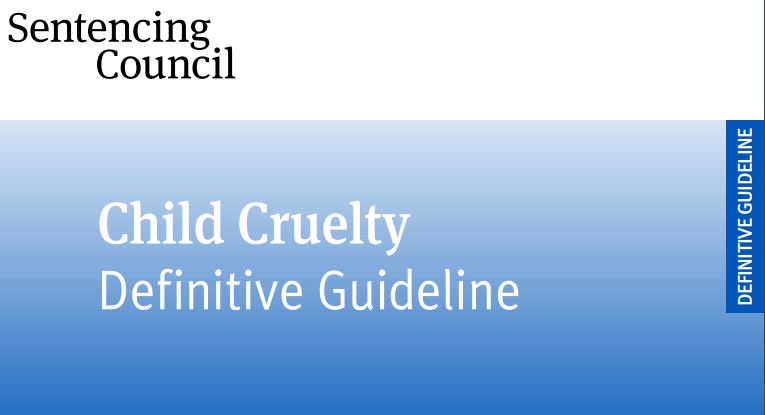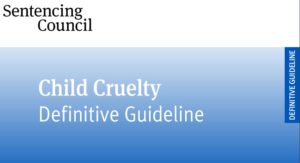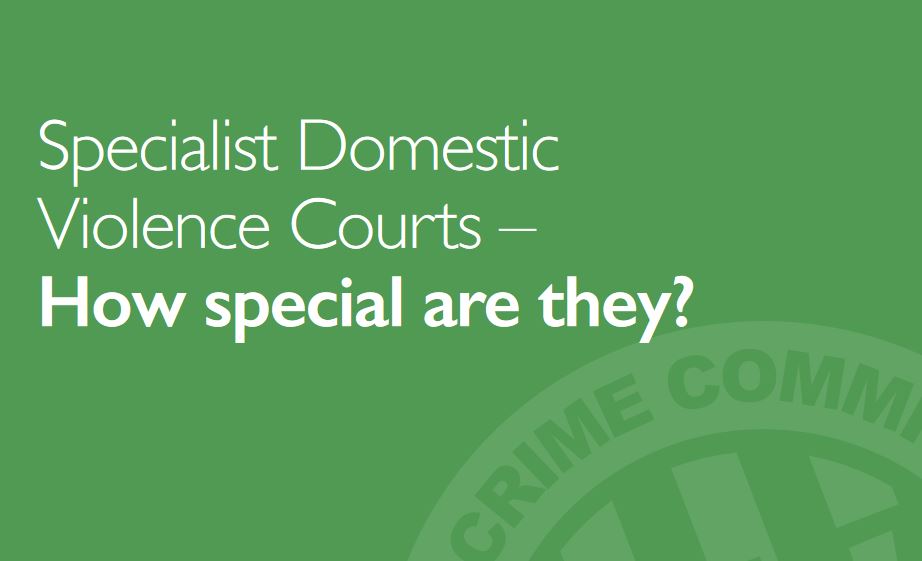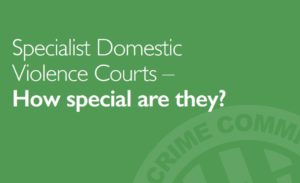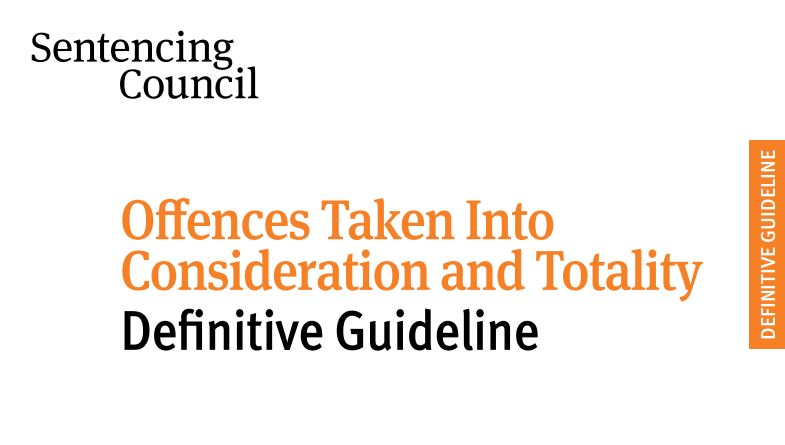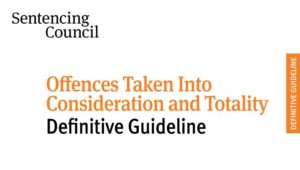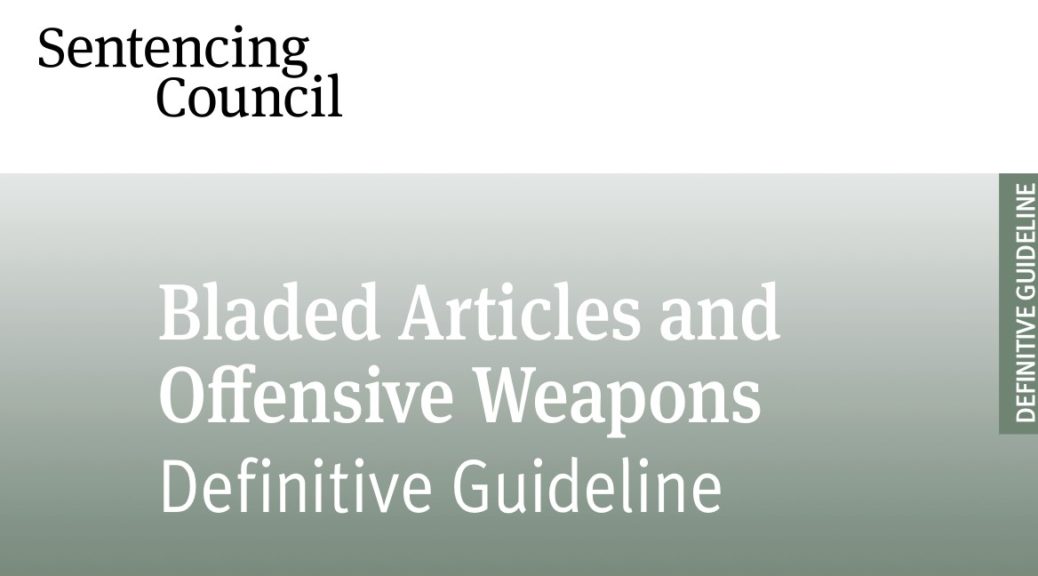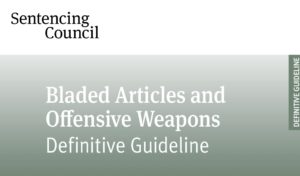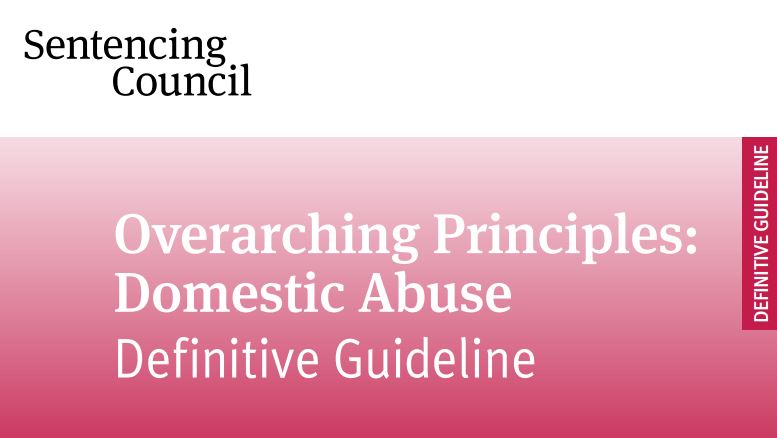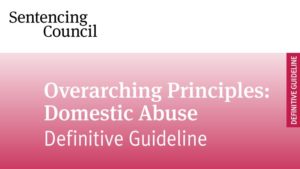The Sentencing Council has published a new guideline for how those guilty of child cruelty offences should be sentenced. It covers three offences:
- cruelty to a child;
- causing or allowing a child to die or suffer serious physical harm; and
- failing to protect a girl from the risk of female genital mutilation (FGM).
Sentencing Council member Mrs Justice Maura McGowan said:
“Child cruelty offences vary greatly. They can range from a one-off lapse of care which puts a child at risk of harm to a campaign of deliberate cruelty which leads to serious injury or even death. This new guideline will help ensure sentences that reflect what the offender has done and the harm to the child. It states for example that cases involving very significant force, or multiple incidents of serious cruelty should always be treated as being in the highest category of culpability. The guideline will also assist sentencers in cases where the offender has also been the victim of abuse from another.”
When does the guideline come in to force?
The sentencing guideline for child cruelty offences applies to all cases sentenced on or after 1 January 2019. This means that cases charged before that date may be affected by the changes if there is to be a sentence after that date.
Does it apply to all offences of causing harm to a child?
No, it doesn’t.
When someone is prosecuted for harming a child, the offence charged will vary according to the circumstances. It is important to distinguish the offences in this guideline from other offences that may be charged, such as assault, murder and manslaughter.
There are also cases in which a child is harmed and one person is charged with assault and another with allowing the child to suffer serious physical harm.
Publication of the guideline marks the first time that there has been sentencing guidance for the offences of causing or allowing a child to die or suffer serious physical harm and failing to protect a girl from the risk of FGM.
The sentencing guideline also provides revised guidance for the offence of cruelty to a child. This replaces the earlier guidance issued in 2008.
Child cruelty offences are complex and can vary greatly. As a result the guideline has been designed to assist with an effective assessment of each case that comes before the courts to help ensure consistent and proportionate sentencing.
Some offenders may be incompetent parents, while others may deliberately inflict harm on children in their care. Child cruelty offences could include parents or guardians leaving children home alone, neglecting them or putting them at risk through alcohol or drug abuse or subjecting them to sustained and deliberate ill-treatment and violence that leads to serious injury or death.
Offences can also involve a parent or guardian having failed to act to protect their child from ill-treatment by someone else in the household, which can be due to them being victims of violence and intimidation from the same person themselves.
Is there anything new in the approach to sentencing?
In assessing harm to victims, as well as physical and psychological harm, the guidelines for child cruelty offences take into account for the first time the developmental and/or emotional harm that such offences can cause to a victim. This may for example be manifested in developmental milestones that a child has not met.
The guidelines also introduce a new aggravating factor of an offender blaming others for an offence. This is because such cases will frequently involve one parent or carer/guardian seeking to blame the other for what happened in order to avoid prosecution.
Another factor that has been added that indicates high culpability is where the “offender [has] professional responsibility for the victim” to indicate that culpability is higher in those rare cases where, for example a teacher or sports coach abuses one of the children in their care.
The guidelines also contain, for the first time, additional guidance for the court in considering whether to impose custody in cases where the offender has parental responsibility and is sole or primary carer for the victim and other children.
In these cases, the court is reminded to consider the impact which a custodial sentence for the offender would have on the victim and whether this is proportionate to the seriousness of the offence. This will be particularly relevant in lower culpability cases where the offender has otherwise been a loving and capable parent or carer.
Cruelty to a child
The offence of cruelty to a child is broad in its form and severity. Cases may be sentenced in the magistrates’ courts or Crown Court and involve ill-treatment and assault, neglect, abandonment, and failure to protect a child.
In the vast majority of cases the offender is usually the parent or guardian of the victim but it could apply to others entrusted with the care of a child. Many of these offences are at the lower end of severity, including low levels of neglect and cases where there is a risk of harm but no harm actually comes to the child.
The new guideline sets out proportionate sentencing levels to cover the wide range of situations that the courts deal with. One offence could involve someone who is an otherwise good parent putting a child at risk through a one-off lapse of care, while another could involve a parent guilty of a campaign of cruelty involving serious violence and sadistic behaviour that leads to a child suffering serious physical or psychological harm.
Causing or allowing a child to die or suffer serious physical harm
The main purpose of the legislation for this offence is that it can be prosecuted in instances where a child has died or suffered serious physical harm as a result of an unlawful act, such as an assault, by a member of the household but there is not enough evidence to prove which of the defendants committed the act. They may both blame each other.
In such cases before the introduction of this legislation, neither defendant could be found guilty of murder, manslaughter or assault and so nobody would be held accountable. The guideline reflects the aims of the legislation, including for example the aggravating factor of an offender blaming others for the offence.
This offence can also be used in its own right, for example if someone in the household is charged with the murder or manslaughter of a child, another member may be convicted of causing/allowing death, if it can be proved that they foresaw, or should have foreseen, that their co-defendant would commit an unlawful act which risked serious physical harm to the child.
There are very low volumes of offenders sentenced for this offence, due to the fact that where a child has been killed, those responsible are likely to be charged with murder or manslaughter, and where the child was badly injured, a serious assault charge would normally be brought.
Failing to protect a girl from the risk of Female Genital Mutilation
This offence is committed when a parent or carer of a girl under 16 allows FGM to take place unless they can show that they were not aware of such a risk and reasonably could not have been expected to be, or that they took reasonable steps in order to protect the girl.
The issue of FGM has been of growing concern within Parliament and the public and so the Council is keen to provide a clear approach to ensure consistent and appropriate sentencing when offenders are convicted.
The guideline takes into account the psychological impact these offences can have on victims and acknowledges that by their very nature, all offences of FGM carry an inherent level of harm.
The full sentencing guideline for child cruelty offences can be found here.
How our criminal law solicitors can help defend child cruelty offences
We will be able to give you advice as to the strength of the evidence in child cruelty offences, the availability of defences and likely sentence upon conviction. You will always be helped by seeking this advice at the earliest possible opportunity.
As a result, if you are arrested or know that the police wish to speak to you about an offence of then make sure you insist on your right to free and independent legal advice.
The advantages of such early advice legal advice can be found here.
If you have already been interviewed or face court proceedings we can still make a real difference to the outcome of your case.
Legal aid may well be available to fund your defence at court.
We have offices across the East Midlands. You can find your most convenient office here. Alternatively you can contact us using the form below.


